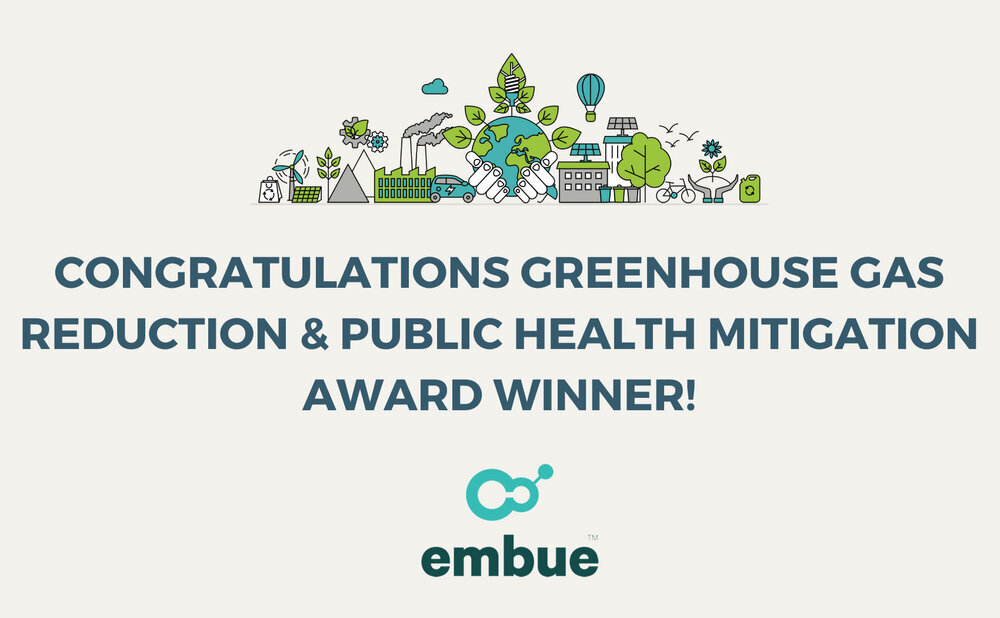Embue named winner of the NECEC Back to Work Challenge: Greenhouse Gas Reduction & Public Health Mitigation category
We’re thrilled to announce that Embue was just named the winner of the NECEC Back to Work Challenge in the Greenhouse Gas Reduction & Public Health Mitigation category.
The Back to Work Challenge Awards recognizes companies who developed new best practices, innovations and partnerships during the COVID-19 global pandemic, and Embue was recognized for our work on the Newcastle Saranac Apartments, a 97-unit affordable housing community located in Boston owned and being renovated by The Schochet Companies, a real estate and development company based in Braintree, MA.
This was a true partnership effort. Schochet worked closely with MassHousing and Fenway Community Development Corporation on the project and with Rethinking Power Management (RPM) to develop the property’s efficiency strategy along with Building Energy Services on specification of the system. Howse Corporation of North Reading, Mass., Victor Francis Mechanical Contracting Co. of Dorchester, Mass and Vencom Communications, Inc of Ashby, Mass. performed the installation.
We’ve worked with Schochet on several projects in the past, but we’re particularly proud of the Newcastle Saranac project because its goal was to preserve affordable housing in an area currently seeing significant gentrification -- and it was started even with the constraints of the COVID-19 pandemic.
Schochet deployed Embue’s whole building intelligence system to:
Improve energy efficiency
Protect the equipment and building fabric from damage
Create a healthy and comfortable environment for tenants
Improved Energy Efficiency and a Projected 20% Reduction in Greenhouse Gas Emissions
To make Newcastle Saranac more energy efficient, Schochet replaced heating boilers with more efficient models and installed variable frequency drives on the pumps that circulate the heating water throughout the buildings. Embue controls the pump speeds and continuously monitors performance and efficiency of all the equipment, with alerts to inform building maintenance staff of potential issues. The measures are projected to reduce greenhouse gas emissions by 20 percent.
Protect the Equipment and Building Fabric from Damage
Embue’s cloud-based, building-wide network takes data from connected devices placed throughout the building to control, manage and monitor central equipment, along with conditions and equipment in both common areas and individual apartments to ensure that equipment is working at peak performance, potential issues are averted and living conditions are ideal.
Creating a More Healthy and Comfortable Environment for Tenants
Embue automatically monitors and detects unsafe and unhealthy settings in apartments and in common areas, including moisture and humidity. Humidity is measured by each Embue thermostat installed in common areas and in apartments, so property managers can measure it in every space of the building and monitor it through Embue Super, a building-wide dashboard.
The Embue system reduces overheating and ensures safe humidity levels by instituting flexible limits on how high residents can set the target temperature and by setting controls on the central equipment, creating a healthier environment and providing energy savings.
Scientists and engineers are still learning about how the novel coronavirus is transmitted from person to person, especially in indoor environments, but one thing has been known for decades: humidity levels are a major factor in the transmission of airborne and respiratory illnesses. Monitoring healthy moisture and humidity levels to ensure a safe environment for residents is especially important in a COVID-19 world, when residents are spending more time indoors.


